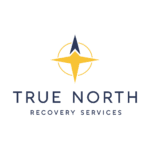Personality disorders represent enduring patterns of inner experience and behavior that significantly deviate from cultural expectations. They manifest across cognition, emotion regulation, interpersonal functioning, and impulse control, causing distress and impairment in work, relationships, and self-image.
This blog explores each of the 10 personality disorders (grouped in clusters A, B, C), shares root causes, highlights signs & symptoms, and outlines treatment options. You’ll also discover how True North Recovery Services provides integrated addiction treatment and mental health support for people coping with these conditions.
What Are Personality Disorders?
- Definition & prevalence: Personality disorders are persistent, pervasive behavior patterns that deviate from cultural norms, causing distress or functional impairment. They typically emerge in adolescence or early adulthood and affect approximately 9–11% of people worldwide.
- DSM‑5 classification: There are 10 recognized disorders, organized into three clusters (A, B, C) based on shared traits.
- Comorbidity: Co-occurring conditions—like anxiety, depression, and especially substance use disorders (SUD)—are extremely common.
- Why it matters: Untreated personality disorders can strain relationships, impair work, and increase the risk of addiction, legal issues, and self-harm.
Cluster A: Odd & Eccentric Disorders
Paranoid Personality Disorder
- Core traits: Pervasive distrust, suspicion, reluctance to confide due to fears others will exploit or harm.
- Symptoms: Constant guard, reading hidden threats, bearing grudges.
Schizoid Personality Disorder
- Core traits: Emotional coldness, indifference to relationships, preference for solitude.
- Symptoms: Few close relationships, limited emotional expression.
Schizotypal Personality Disorder
- Core traits: Eccentric behavior/appearance, odd beliefs or spells, perceptual distortions.
- Symptoms: Magical thinking, unusual speech, discomfort in close relationships.
Cluster B: Dramatic, Emotional & Erratic
Antisocial Personality Disorder (ASPD)
- Core traits: Disregard for the rights of others, deceitfulness, impulsivity, and aggression.
- Symptoms: Law-breaking, manipulation without remorse.
Borderline Personality Disorder (BPD)
- Core traits: Emotional instability, fear of abandonment, unstable self‑image.
- Symptoms: Mood swings, impulsive behaviors (gambling, substance use), self-harm.
Histrionic Personality Disorder
- Core traits: Excessive emotionality, attention-seeking, superficial relationships.
- Symptoms: Dramatic displays, rapid shifting of emotions.
Narcissistic Personality Disorder (NPD)
- Core traits: Grandiosity, need for admiration, lack of empathy.
- Symptoms: Exaggerated achievements, entitlement, envy, exploitation of others.
Cluster C: Anxious & Fearful
Avoidant Personality Disorder
- Core traits: Social inhibition, feelings of inadequacy, hypersensitivity to criticism.
- Symptoms: Withholding in relationships, avoiding new activities.
Dependent Personality Disorder
- Core traits: Excessive need to be taken care of, submissive behavior, fear of separation.
- Symptoms: Difficulty making decisions, staying in unhealthy relationships.
Obsessive–Compulsive Personality Disorder (OCPD)
- Core traits: Preoccupation with order, perfectionism, control.
- Symptoms: Rigid routines, reluctance to delegate, workaholic tendencies.
Other Specified & Personality Change Due to Medical Condition
Beyond DSM‑5’s ten, clinicians sometimes diagnose:
- Other Specified Personality Disorder (PD-TS) for mixed symptoms.
- Personality change due to trauma, brain injury, or medical condition.
Causes & Risk Factors
- Biology & genetics: Family history, genetic predisposition influence vulnerability.
- Early environment: Childhood trauma, neglect, abuse, and unstable relationships play strong roles.
- Developmental factors: Personality traits solidify in adolescence; maladaptive reactions become entrenched.
Co-Occurrence with Addiction
- Up to 78% of individuals with BPD develop a substance use disorder.
- People with ASPD and NPD often struggle with addiction.
- Those with personality disorders are more likely to drop out of rehab unless dual diagnosis treatment is provided.
Diagnosis & Screening
- Clinical assessment by mental health professionals using DSM‑5 or ICD‑11 criteria.
- Tools include structured interviews, behavior rating scales, and clinical observation.
- Self-screening instruments offer guidance but don’t replace professional diagnosis.
Treatment Strategies
Psychotherapy
- Dialectical Behavior Therapy (DBT): Gold standard for BPD, also effective for co-occurring addiction (DBT‑SUD).
- Cognitive Behavioral Therapy (CBT): Addresses distorted thinking across PDs.
- Mentalization-Based Therapy (MBT) and Schema Therapy offer deep insight work.
- Group/Family Therapy builds interpersonal skills.
Medication
- No universal “PD pill”—yet SSRIs, mood stabilizers, and antipsychotics may ease anxiety, impulsivity, or depression.
Integrated Dual Diagnosis Treatment
- Treating personality disorders and SUD simultaneously leads to better outcomes and lower dropout rates.
Supportive Measures
- Self-help resources, peer support, psychoeducation, and long-term aftercare strategies like skill-building and social support.
How True North Recovery Services Can Help
At True North Recovery, located in the Denver Metro area, we specialize in addiction treatment intertwined with mental health support, recognizing how personality disorders and substance use often intersect.
We offer:
- Outpatient addiction treatment for opioid, alcohol, cocaine, and more—integrated with mental health services.
- Evidence-based care: DBT, CBT, and medication management led by experienced therapists.
- Recovery support services: Group therapy, relapse prevention, educational workshops.
- Comprehensive diagnostic assessment, including intake application and co-occurring disorder screening.
- Personalized aftercare and sober living guidance—to support long-term stability and prevent relapse.
Our holistic, client-centered approach helps individuals navigate personality challenges while building resilient recovery paths.
Encouragement & Final Thoughts
If you or a loved one relate to signs of personality disorders—especially in tandem with substance use—know that help is available, and integrated care works. True North Recovery Services provides a compassionate hub where recovery from addiction and mental well-being are treated as pieces of the same puzzle.
You’re not alone on this journey—and healing is possible.


